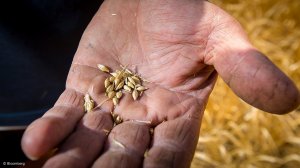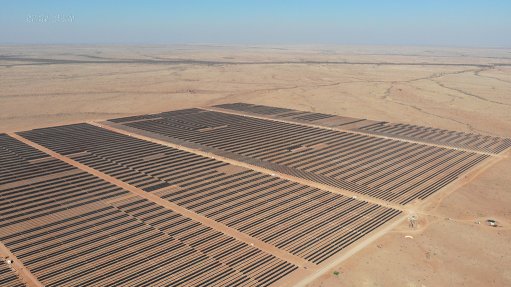Potential impact of excessive rain on food prices uncertain for now
As farmers are exasperated from watching excessive rainfall damage their crops, consumers may also suffer from higher food prices in the near future.
However, the exact impact on plantings and crops is yet to be determined.
High levels of rainfall have been recorded over the last two to three months, causing severe delays in planting activity in some areas.
Agricultural Business Chamber chief economist Wandile Sihlobo says in an opinion piece that farmers need rain, of course, but in reasonable quantities, and not what we have been seeing this season.
Grain South Africa has also highlighted excessive rains as the single biggest risk to crops this year, compared against other risks such as frost, crop diseases, weeds and hail damage.
“Such results would be unthinkable a few years ago when the major climate-related risk for most areas of South Africa was drought,” Sihlobo points out.
He adds that South Africa is in an unusual period, with the country not having had three consecutive seasons of above-average rainfall in a long time.
The current 2021/22 rainy season follows 2020/21 and 2019/20, which also had above-normal rainfall. These prior seasons were, however, still moderate in terms of intensity and supported agricultural activity.
In fact, Sihlobo hails 2021 as one of the best agricultural seasons in a long time.
Considering the maize industry, the seasons of 2019/20 and 2020/21 were the first time in history where South Africa’s maize yields have surpassed 15-million tonnes in two successive seasons – 15.3-million tonnes in 2019/20 and 16.2-million tonnes in the 2020/21 season.
The typical cycles of above-normal rains in South Africa are two seasons, normally providing for a large agricultural output. These favourable spells tend to be followed by dryness and, thereafter, a notable decline in crop output, Sihlobo explains.
The only periods in the recent memory that had three successive years of conducive weather conditions and a large crop harvest were in the 2007/08, 2008/09, and 2009/10 production seasons.
During this period, commercial maize production was more than 12-million tonnes each year, averaging 12.5-million tonnes a year. Other crops such as soybeans and sunflower seed also had relatively large output during this period. The grazing veld for livestock also improved.
At the start of the current season, there was generally no concern about the possibility of excessive rain, says Sihlobo, echoing the views of the Crop Estimates Committee, which at the end of October 2021 reported on behalf of farmers that they planned to lift the area planted with summer crops by 3% in 2021/22.
The actual plantings have probably been less than originally planned, which will negatively affect yields in several provinces.
FOOD PRICE IMPACTS
Sihlobo says there are understandably worries and questions about what these rains mean for South Africa’s food price inflation for the year.
But one has to appreciate that the domestic heavy rains challenges come on the backdrop of already elevated agricultural commodity prices and, thereafter, food price inflation.
For example, the data available for the first 11 months of 2021 shows that South Africa’s consumer food price inflation averaged 6.5% - compared with 4.6% year-on-year in 2020.
The products in the food inflation category, such as bread and cereals, meat, oils and fats and vegetables, have primarily underpinned the uptick in headline consumer food price inflation.
Sihlobo notes that all this transpired when the country had one of the best agricultural seasons in years. The price drivers were not domestic events, but more global developments. The large crop harvests in South Africa contributed less towards price determination here at home than the rising crop demand in Asia or a poor harvest in South America.
These drivers have not subsided and even good prices remain high in many places of the world owing to extreme weather.
“Therefore, the possible decline in crop harvest in South Africa will not be the only driver of food prices in 2022. Much of what consumers will be paying for food will also result from these global events that we have no control over.
“Importantly, there is also no telling at the moment how much the summer crop harvest will be and whether it will decline to the extent that South Africa will have to import some supplies. This is one of the questions that will be clearer with time.”
Although Sihlobo envisions a poorer harvest than last year, he doubts it will be to such an extent that agricultural imports are called for.
Before the excessive rain impacts, Sihlobo’s initial worry on the food price inflation basket was about meat, which decelerated somewhat in November, along with oils and fats.
“I thought these particular products prices had a potential upside risk. Data from the Red Meat Levy showed that South Africa’s cattle slaughtering activity was at relatively lower levels for much of 2021 compared to 2020.
“Moreover, South Africa is a net importer of vegetable oils and fats, and these product prices have remained elevated in the global market.”
Clearly, for the earlier months of this year, food prices and possible damage in some farming communities will remain topical and the latter could need government assistance.
“Still, we will monitor the developments and formulate views on price direction as more credible data becomes available,” Sihlobo concludes.
Comments
Press Office
Announcements
What's On
Subscribe to improve your user experience...
Option 1 (equivalent of R125 a month):
Receive a weekly copy of Creamer Media's Engineering News & Mining Weekly magazine
(print copy for those in South Africa and e-magazine for those outside of South Africa)
Receive daily email newsletters
Access to full search results
Access archive of magazine back copies
Access to Projects in Progress
Access to ONE Research Report of your choice in PDF format
Option 2 (equivalent of R375 a month):
All benefits from Option 1
PLUS
Access to Creamer Media's Research Channel Africa for ALL Research Reports, in PDF format, on various industrial and mining sectors
including Electricity; Water; Energy Transition; Hydrogen; Roads, Rail and Ports; Coal; Gold; Platinum; Battery Metals; etc.
Already a subscriber?
Forgotten your password?
Receive weekly copy of Creamer Media's Engineering News & Mining Weekly magazine (print copy for those in South Africa and e-magazine for those outside of South Africa)
➕
Recieve daily email newsletters
➕
Access to full search results
➕
Access archive of magazine back copies
➕
Access to Projects in Progress
➕
Access to ONE Research Report of your choice in PDF format
RESEARCH CHANNEL AFRICA
R4500 (equivalent of R375 a month)
SUBSCRIBEAll benefits from Option 1
➕
Access to Creamer Media's Research Channel Africa for ALL Research Reports on various industrial and mining sectors, in PDF format, including on:
Electricity
➕
Water
➕
Energy Transition
➕
Hydrogen
➕
Roads, Rail and Ports
➕
Coal
➕
Gold
➕
Platinum
➕
Battery Metals
➕
etc.
Receive all benefits from Option 1 or Option 2 delivered to numerous people at your company
➕
Multiple User names and Passwords for simultaneous log-ins
➕
Intranet integration access to all in your organisation





















